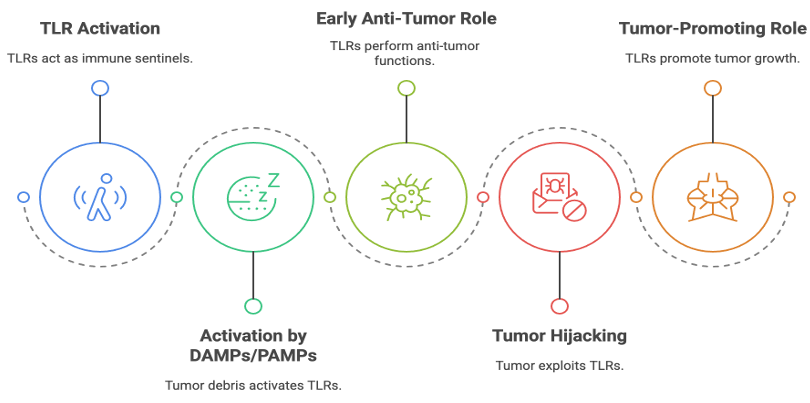Our Technology
Advancing our unique mechanism of action with dual targeting of TLR4 and TLR2 to reduce chronic non-resolved inflammation around tumors by inhibiting immunosuppressive mechanisms and activating the immune response
Chronic non-resolved inflammation is a persistent and dysregulated immune response that fails to resolve, leading to continuous tissue damage, immune suppression, and a pro-tumorigenic environment
Current treatments for cancer-associated chronic inflammation are largely ineffective due to their inability to address root causes, often providing temporary suppression rather than true resolution
By advancing Duhn’s targeted dual mechanism of action small molecules as a TLR4 antagonist and TLR2 agonist with unique and specific immunomodulating properties, we aim to overcome current treatment limitations and address the underlying cause of cancer metastases and treatment resistance
Corruption of TLRs by the tumor
TLRs are innate immune sentinels with inherent anti-tumor functions, detecting damage-associated molecular patterns (DAMPs) and pathogen-associated molecular patterns (PAMPs) to trigger immune responses
In early cancer stages, TLR activation recruits immune cells to eliminate malignant cells, however, prolonged activation of TLR4 leads to immune exhaustion, recruitment of immunosuppression, angiogenesis and fibrosis, and as a result, TLR4 becomes tumor-promoting, driving inflammation, immune evasion, and therapy resistance

Targeted balanced modulation of both TLR4 and TLR2
